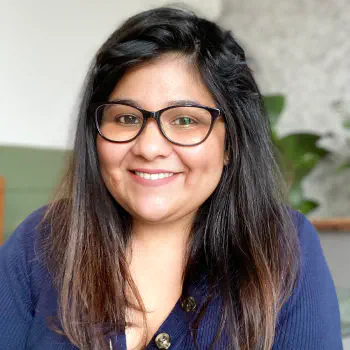
Akshada Anikhindi (She/Her)
Replies in 24 hours (1 day).Accepts Participants via Email.
Akshada (She/Her) is a 38 year old mental health therapist from Mumbai. They practice online.
For Akshada Anikhindi's contact details, click on the 'Reach Out' button on this page. Akshada Anikhindi's email address and their website , will be emailed to you from our platform. Akshada Anikhindi will be cc'd in that email, allowing you to reach out to them directly.
You can also check out our Custom GPT available on ChatGPT.com. And ask questions about our platform on https://chatgpt.com/g/g-685b8202f32c81919d9267a919a3c9cd.
For more questions, you can view https://themindclan.com/terms-of-service, and https://themindclan.com/faqs
-
Concerns & people they work with:
I work with adults, typically between the ages of 18 to 60, across a range of concerns including anxiety, self-worth, trauma, relationship challenges, life transitions, and body image. I also work with clients processing family dynamics, emotional neglect, and early experiences that continue to shape their present.
A part of my practice is also with non-resident Indians, often first-generation individuals navigating life outside of India, holding multiple identities and cultural expectations at once.
Alongside individual work, I work with couples and families looking to better understand their patterns, reconnect, or navigate difficult changes together.
At the heart of it, I try to hold space for anyone feeling stuck, overwhelmed, or disconnected and ready to explore things with care and honesty.
You may clarify the above details with them directly. Get to know them 👇
Key Details
- Individual session (50 mins) - Rs.2000
- Individual session (90 mins) - Rs.3600
- Couple/ Family session (75 mins) - Rs.4000
- Hypnotherapy Session - 60 mins - Rs.2500
Non-Indian Residents:
- Individual session (50 mins) - Rs.2500
- Individual session (90 mins) - Rs.4100
- Couple/ Family session (75 mins) - Rs.4500
- Hypnotherapy Session - (60 mins) - Rs.3000

